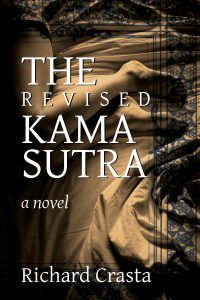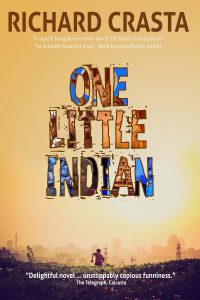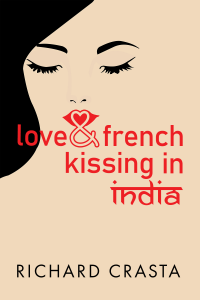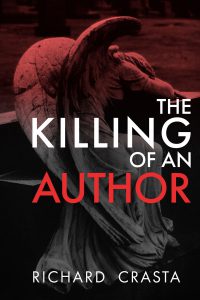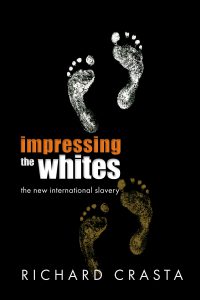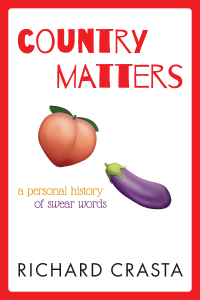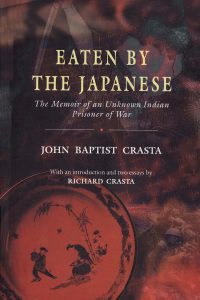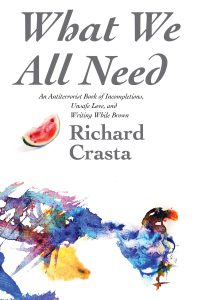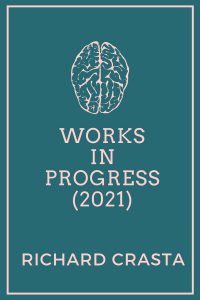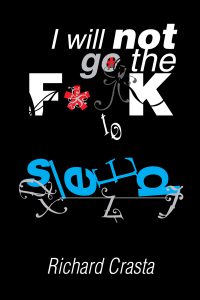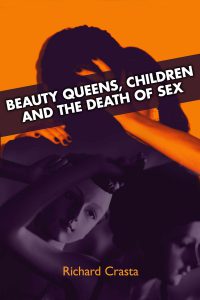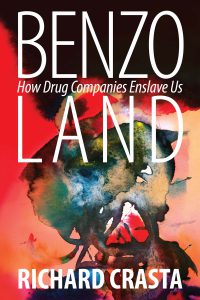I joined the State Bank of India or SBI as a probationary officer in October 1975, my disservice beginning in Hyderabad for ten days of lavish food and accommodation, brain nuggets, wisdom, and sass from such bigwigs as the Chairman, R.K. Talwar, and a Deputy Managing Director in whose perfectly polished shoes you could see the reflection of your silly, youthful face. This induction was held in what looked like a five-star hotel disguised as the SBI staff college.
It would be for most of us the beginning of two years of paid holiday in India’s largest bank, once called the Imperial Bank of India. We were all feeling fairly imperial and heady, as if we’d just had our first sip of champagne, and then a second and a third immediately afterward. I had spent the first nine months of that year as a slightly upscale wage slave at the Bank of Baroda, Lucknow, and in comparison, the SBI was paradise. In the Bank of Baroda, a nasty accountant had taken umbrage at my direct recruit officer status, and forced me to work long hours doing merely clerical work at a clerk’s desk, adding account totals and balancing the books until 7 pm each day, forcing me to go home in the dark in the bitter cold. When another recently recruited officer, a Punjabi named P.C. Singla, joined 6 months later, he noticed something fishy about this arrangement and upbraided the accountant for treating me in this manner rather than training me in all departments. And soon after, the accountant was hoist with his own petard when the shrewd and charismatic president of the Officers Association, Mr. Narayan, who made the regional office management tremble, took a liking to me and upbraided the accountant for having tried to trap me in a setup in which I was supposedly to lose cash belonging to the bank.
At the SBI staff college, I got drawn into, or stuck myself to the edges of a circle of the intellectual elite in that group: Sheshadri Iyengar, Vijay Murthy, Gautam Sen, Rothin Bose, and a few others whose names I forget … I think DS of the Delhi School of Economics was there, or else he was trained immediately after and I met him later, but he was of the same batch. What distinguished this elite was their upper class attire (grey cotton pants and white cotton shirt, both spotless, along with black dress shoes), which identified them as graduates of elite Delhi colleges such as St. Stephens and Hindu College, the Delhi School of Economics, or Madras Christian College or Loyola or Xavier College in Madras and Calcutta. One of them, Joydeep Sircar, identified himself as a poet and was writing poetry even at that time, and many of the rest seemed to be poetic connoisseurs, unlike me: I had still to read most of the “must-read” prose classics everyone else seemed to have read. I don’t know what made them tolerate me–perhaps pure compassion for my small-town innocence, or appreciation for my no-hypocrisy references to sex–for I wore the most ridiculous outfits, spending the next three years of my life wearing skyblue terrene bellbottom pants and an orange long sleeved terry cotton shirt, an outfit influenced by a Hindi-film-hero adoring friend, and not knowing enough as to use aftershave (the poverty complex I had inherited from my parents made me very stingy with spending, even for my personal attire). Yet, possibly with the help of one tasteful pair of grey trousers and a pale blue shirt at the interview, I had made it this far, beyond my father’s wildest dreams, I had won a rank in the B.A. and a gold medal, and been published in a Bangalore newspaper and national magazine, and had begun reading Time and Newsweek at 10, so what I had at 22 was confidence, huge ambition, and ignorance of how backward I really was in other respects, how tough my chances in the big wide world.
Anyway I admired them and gravitated towards them because of Sheshadri’s wit and decency and impeccable smile when amused, Rathin’s kindness and empathy, and some of the others because that was what serfs like me had been put on Earth to do: admire the upper class, including the pretenders and the pseudos (it would take much time to learn to distinguish between the pseudos and the genuine, so I took in all, tipped my hat to all but the too-obvious charlatans). And I was grateful for the nuggets, grains, and rat droppings of sophistication falling from them. I was an open book, being myself and speaking my mind honestly, and only through trial and stupid error did I learn what to say and what not to say to others or to create a good impression, but it was too short an apprenticeship to learn enough so as not to look like a country bumpkin one year later in front of the UPSC interview board, where my asinine, un-coached replies would be punished with low marks (40 percent) that left me five ranks short of the Indian Foreign Service seat I had really wanted, because my dreams were of going to America and becoming a writer—and somehow, the IFS would get me there.
I did have a sense of the absurd, probably inherited from my father, a World War II Japanese prison camp survivor who had barely escaped death dozens of times, but it was largely grounded in books I had accidentally picked up along the way (and the Hamlet that I studied in college, which contained the lines, “Lady, can I lie between your legs?” and “To the celestial and my soul’s ideal, the most beautified Ophelia”). I had had no literary colleagues, no mentors, no guides, no wise older friends who might advise me what to read. These books: a collection of limericks of which I could quote many from memory, including the ones about the young man of Madras with balls of brass, and the young woman of Tottenham whose manners—she’d forgotten ‘em. And a self-help book, and Sexercises, which might have made them laugh me off the planet. Also, in P.J.s or poor jokes I had picked up from a student comedian at the Goa AICUF camp. I had yet to read or acquire a taste for P.G. Wodehouse, unlike them; though I had indeed read quite a few Punch magazines from the Mangalore Central library: that was another dream, to one day become the editor of Punch.
So, at first, they found my strange sense of humor or irrepressible versifying to be irritatingly banal (I had lost eight years of my childhood to religious brainwashing and obsession, so in some respects had the emotional maturity of a 15-year-old), but I finally got a bit of respect from Ja-gotcha-guru Sheshadri “Will the aforesaid member please stand up?” Iyengar when, responding to one of us starting one of those jokes with the introductory line, “The Tao of…” I shot back, “Let’s not have that nao (na-oh, just in case some spellcheck program or proofreader kills the spelling and the joke with it). The other superguru was Moorthy, who was so tickled with my observation, about the Englishness of the British-built buildings of Calcutta–“They must have built them with limey-stone”—that he responded in a typical Limey accent:
“That’s a splendid one, old chap!” (Yes, because I still have that country bumpkin’s insecurity, inferiority complex, and need for approval by the Elect, I must quote Their Worships’ approval.)
I also had a photographic memory for limericks, such as this surprisingly autobiographical one, which I suddenly recalled today after 40+ years, and which goes:
There was a young man named Lancelot
Who at girls would look askance a lot.
Whenever he’d pass
A presentable lass
The front of his pants would advance-a-lot.
Along with my conversational greenness and insecurity, I was even more rattled by my sexual greenhornness. For by the time I entered the State Bank of India (ah, what a cock-tease of a word, “entered”), I must have had the longest-running case of blue balls ever recorded in medical history and my well-paid and seductive female researchers, directed by Sidney Powell (formerly of Trump’s legal team and Hugo Chavez fame), have by now scoured every medical chart the world over to confirm this alternative fact. In fact, blue had become the permanent color of my balls, so much so that every time I heard someone sing “I’m feeling blue,” I had to laugh, painfully. Girl friends or sex before marriage were not options then to a middle class Indian boy, not even one who had made it into a nice job like this. So, as morality and sin are relative to circumstances, almost any desperate remedy that I lurched towards in an attempt to cure my painful condition should be viewed with compassion.
Fortunately, the bank had doubled my salary vis-à-vis my previous bank, the Bank of Baroda, and made my income shoot up through the psychologically important class ceiling of 1,000 and right into 1,500-rupee territory, which allowed me money for discretionary spending, it was in Calcutta’s Sonagachi, the largest red light district in India, that, for the first time, a part of me entered a foreign body, and one belonging to a female of the species, no less. I owe this partly to the information provided by my SBI colleague, DS, a suave and worldly-wise person who was a joy to be with (I’m thankful for his company and friendship), and who must have been, in sexual terms, a 30-year-old compared to my 15-year-old greenness.
Since there was no liquid expression of delight or Ode to Joy, and I had been expelled by Her Majesty with my hard-on uncured, and with the curt words—“Time is up” —before I could finish my god-given duty, I have always considered it a semi-loss of virginity, one that still left my male hymen intact (yes, we men have invisible hymens, which we develop as a result of hymen envy, as the venerable Siegfried Freud has asserted).
Almost certainly not on this occasion, but on another during which, dissatisfied with the quality and less than Juliet-like passion of the woman shown to me, I did nothing—In other words I looked into the room, saw the woman, wasn’t charmed, said No Thanks, and walked away. Unfortunately, I had let my cycle rickshaw go—to save a few rupees!–and there was none around, so I decided to walk back, sometime in the middle of the night. And since this red light district, possibly the biggest in Asia, was a maze of lanes and identical buildings, I lost my way: I had thought I would, sooner or later, hit a “respectable” street, and might as well, as a writer, get a feel for this place. And that is when I was suddenly surrounded by three or four thugs or street ruffians, one of them holding against my belly a pointed steel rod that he could have easily driven straight through my abdomen and out the back.
And that is when my SBI identity, which had resulted in my meeting an IAS officer, Mr. Prasannan, in Cooch Behar town, along with his IPS or Indian Police Service colleague and friend, a Mr. Das, the young Additional Superintendent of Police, saved me (though it might have killed me). Not only had the young IAS officer, a fine gentleman like Mr. Das, liked me enough as to offer me one of the bedrooms in his official quarters (his wife was back in Kerala, and he was alone), but the three of us would, weekly or so, get together to share a Golden Eagle beer. Just one-third of a tall bottle of Golden Eagle would transport us to Heaven. To Mr. Prasannan I owe my having joined the IAS, which changed my life; he corrected the misinformation I had received, that you needed to have a Master’s Degree to sit for the IAS exam. He told me in no uncertain terms, “Nonsense, a B.A. degree is enough.” And I applied, immediately, and made it before the deadline. (To Seshadri Iyengar I owe my success, for he was the one who advised me which optional subjects to take.)
[This is Part I. Part II of the story will be published in a week, and/or in a short e-book also with a couple of chapters of IAS memories.]
